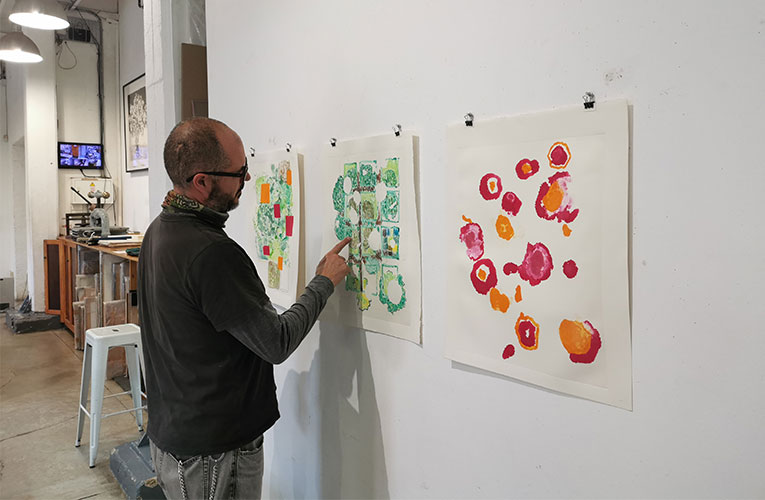Stephen Hobbs’s exhibition at David Krut takes you on a roller coast journey from Ireland back to South Africa during lockdown
By Edward Tsumele, CITYLIFE/ARTS Editor
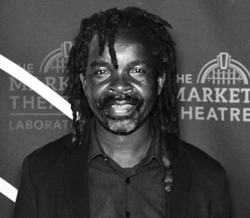
He certainly made his name locally and internationally mostly creating art for public interest in some of the most dangerous places in Johannesburg, including the inner city of Johannesburg and its surrounding townships like Alexandra near Sandton, in some cases having bottles and other objects thrown at him and worse in the process. That is in the past 20 years or so as he and his partners created public works installed in some of the most socially and economically depressed parts of urban Johannesburg. In other words, he has beaten the hard streets of Johannesburg in pursuit of art that has relevance to the ordinary men and women of Johannesburg, the underdog as part of his public art art practice, and of course has exhibited in some of the most important galleries both in South African and internationally. His body of work is both in public institutions like museums and private collection all around the world.
But Stephen Hobbs either as part of the Trinnity Session or as an individual seems to thrive on art that intrigues a viewer, making a viewer think hard about what they see and understand about his creations, whether it is public art or art in a gallery, you will never fail to be intrigued by his mind. He is one artist who is mostly inspired by architecture and seems to create works based on his concept of what good architecture is and should be. In other words, he is an artist who has a mind of an architect in the way that he creates art. However Hobbs’s eye for what he considers should inform an art practice could also be said to be that of a social anthropologist, who researches the society’s context in which he works well.
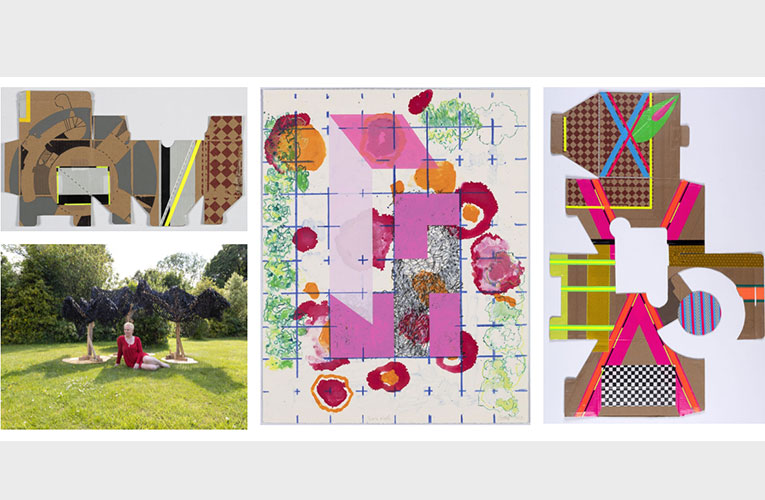
I had an opportunity to sit down with the artist this week, Tuesday, August 30, 2022 at David Krut Gallery in Parkwood, Johannesburg. where he has an exhibition going on, having opened on Saturday, August 27, 2022, running at the same time as his installation with a difference at his Maboneng Studio.
Both these exhibitions are quite important in the career of the artist in that they both have been informed by his experience in Ireland in the UK, where he and his family relocated to in 2019, just before the world pandemic shook the world to its foundation, creating mayhem in both the social and economic lives of the world’s population. Retrictions of movement were put in place, vaccination mandets were implemented and generally panic took over societies and authorities did not know how to handle the pandemic in most cases.
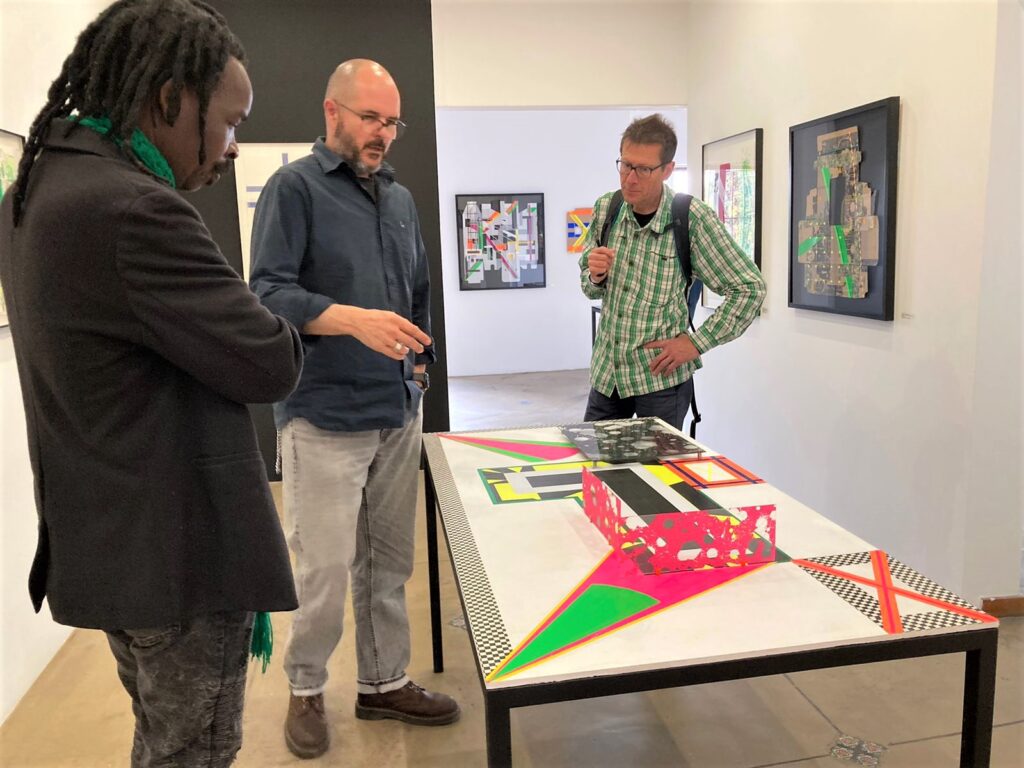
“My family and I found this house in deep rural Irelenad and it is surrounded by nature, a sort of natural set up where we made ourselves at home. But Covid-19 happened, forcing a lockdown there as well as in South Africa in March 2022. It was an experience one could compare to the trauma people must have felt in the Second World War where people’s freedom of movement was suddenly taken away from them as soldiers in some cases were unleashed into the streets, as countries tried to contain the spread of the virus. And of course some of us knew that it was not going to be easy for poor people to comply with these rules in especially situations where poor peole live in overcrowded conditions, such as Alex.
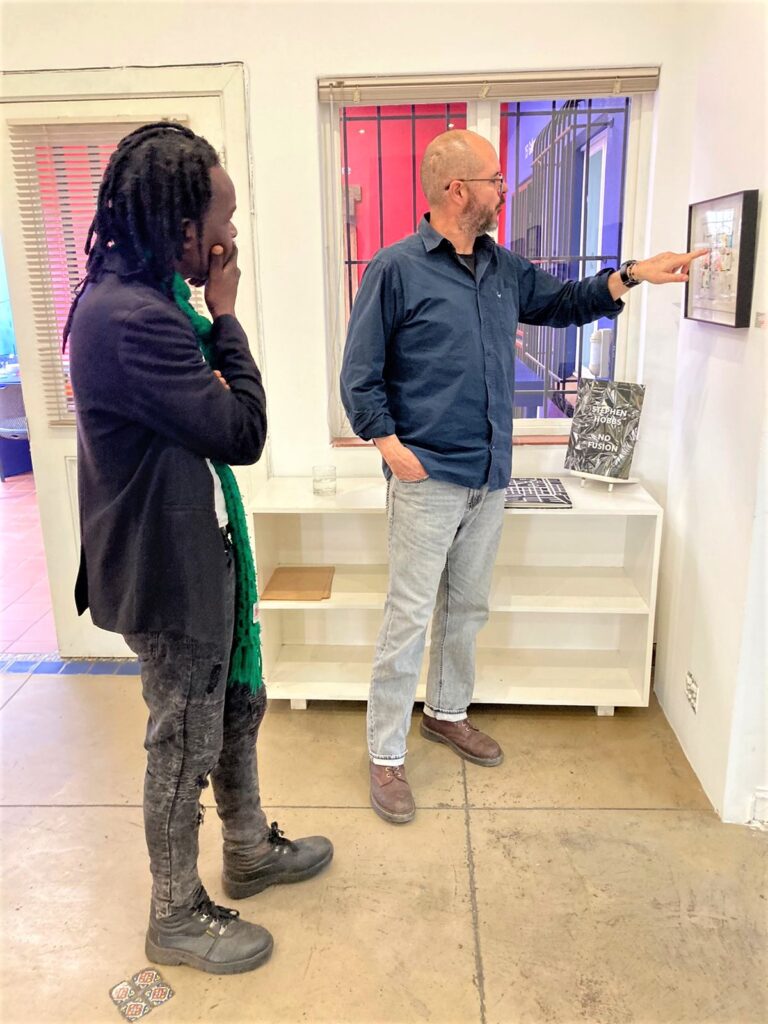
“At that stage I was expecting the consignment of goods we had taken from South Africa to arrive in boxes as well as some of the art supplies from Amazon. All these goods were in boxes and under tap. This body of work was created around the material I found myself with, such as the boxes and the tap as well as the house that became our home in Ireland during that time. There is a lot of colour in these works, referring to the environment that we found ourselves in,” the artist said in an interview with CITYLIFE/ARTS.
Hobbs’s exhibition called A short life with Bungalow Bliss Bungalow Bliss, (27 August – 24 September 2022) at David Krut Bookstore and Gallery, located at 151 Jan Smuts Avenue, Parkwood, Johannesburg includes new monotypes, limited edition linocuts and mixed medial silkscreened works, myriad mixed media ‘Box’ works, accompanied by a series of Plexi-glass assemblages.
Essentially this exhibition traces the artist’s journey, feelings, thoughts and contemplations since relocating to Ireland in December of 2019 and returning to SA in July of 2021.

Hobbs’s practice has undergone a significant revision; where his approach to art making – while remaining within the conceptual realm of aesthetics and war, psychology and the body, art, and architecture, was tested by the hard lockdowns experienced in rural Cork (Ireleand).
Freedom to take walks and enjoy the abundance of forests, rivers and farmlands were a privilege to escape to, yet the imposition of 2km and 5km travelling distances imposed a Truman Show like hyperreality on our minds and bodies and a false sense of safety within an entirely arbitrary circumference.
Across the planet, our bodies were subjected to numerous distancing methods as the deliverology logics of the pandemic sought to make sense of isolation tactics to curtail the movement of human beings and the spread of the virus.
And the cumulative fear tactics that ran in parallel sent the mind and body into varying states of paralysis. The three months enjoyed preceding the closing of schools in Mid-March of 2020, we considered a gentle landing and for the first few months into the first lockdown, we, like many enjoyed the total slow-down on the planet; offering much needed respite from lives in perpetual motion.
The summer months of 2020 were pretty good for the Republic, and we indulged in what might have seemed bizarre behaviour to our neighbours – seeing us frolicking in our kid’s inflatable pool, blowing air bubbles, gardening in our costumes and generally having a laugh at the absurdity of our circumstances. The world had come to a standstill and there was an idyllic peacefulness for a short while.
Access to art, hardware and gardening supplies stores was tracked constantly in the hope of finding a gap to get ‘real’ materials. Everything else was produced with the tools that came over by suitcase and later by sea. And the one mechanism that remained most reliable was online shopping, delivery times were sometimes an issue, but soon we were accumulating as many found materials as alternative making media.
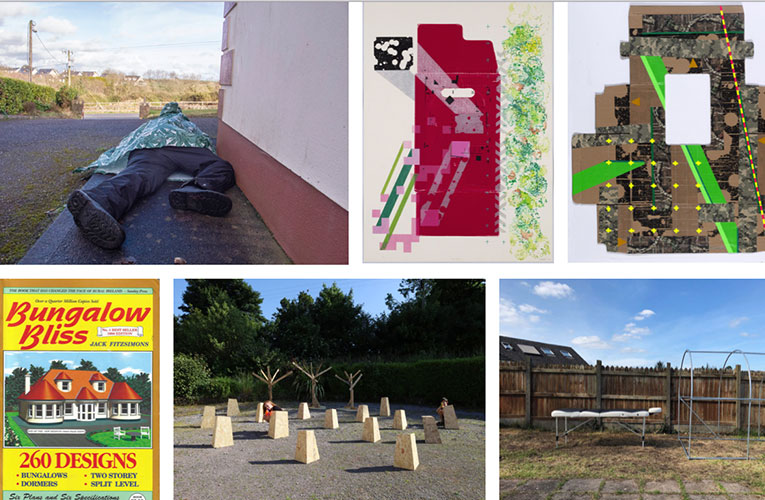
The house we moved into, was perfect, 4 bedrooms, a fireplace in the kitchen / lounge and main lounge, plenty of soft and hard outdoor space, a small garage and a pretty view. The dining room was converted into an office and studio, nothing could be nailed to the walls, so stilt propped boards were installed. We now had a number of indoor and outdoor options for making things.
Very soon we learned that the house we were renting was more commonly known as a bungalow and its economical built form was the result of a rural housing revolution started in the early 70’s by architect Jack Fitzsimons – whose one stop housing plan templates and approval processes fast tracked rural Irish families into more dignified modern housing.
His iconic publication Bungalow Bliss is a best seller in Ireland, first published in July 1971 and now in its 13th edition. Our bungalow and the footprint of land it occupied soon became rehearsal grounds for an artistic war on confinement.
This of course was never the plan, Ireland was to be our new home, Johannesburg our second and we had big dreams for a variety of new futures, but it wasn’t meant to be. Now a year on, Hobbs has reconciled and reconfigured remnants of memories, actions, installations and made things into two bespoke exhibitions.
The first: A Short life with Bungalow Bliss at THE BLUE HOUSE, 151 Jan Smuts Ave, Parkwood, includes new monotypes, limited edition linocuts and mixed medial silkscreened works, myriad mixed media ‘Box’ works, accompanied by a series of Plexi-glass assemblages.
The second: Shallow Sleep at his studio in Maboneng, listed as part of the Johannesburg Art Fair Open City Programme, immerses the audience in a series of situations expressed through a largescale painting installation, combined with found objects, video and archival references to ‘a short life’ in Ireland.
Links: Viewing Room: https://davidkrutportal.com/stephen-hobbs-a-short-life-with-bungalow-bliss/ Podcast with Stephen: https://davidkrutprojects.com/55542/artkeepsgoing-artsy.
Stephen Hobbs A short life with Bungalow Bliss Bungalow Bliss, (27 August – 24 September 2022) is at David Krut Bookstore and Gallery, located at 151 Jan Smuts Avenue, Parkwood, Johannesburg, and his instllation Shallow Sleep is at his studio in Maboneng, listed as part of the Johannesburg Art Fair Open City Programme runnning from Sunday Sep 4 – Sunday to Sep 11 at his Maboneng studio at 254 Albertina Sisulu Rd and meet the artist on Sun, Sept 4 at 10:00-13:00.










